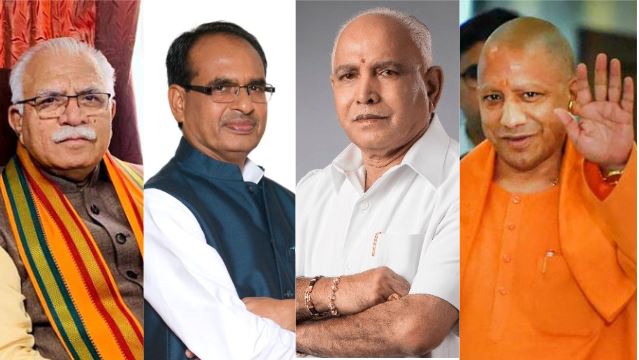The COVID-19 Pandemic has led to companies exiting the “world’s factory”, China in an unprecedented exodus, and the ruling BJP is not in a mood to let this opportunity go unleveraged. Thousands of MNCs, including Korean, American and Japanese firms have decided to leave China and almost 1,000 such firms want to translocate their operations into India.
The BJP-led state governments are planning to make the maximum out of this advantageous situation that has come India’s way out due to the Coronavirus outbreak. Starting with Yogi administration in Uttar Pradesh, several states are unveiling unprecedent land and labour reforms that are going to catapult India into an attractive destination for foreign investment and manufacturing.
Uttar Pradesh, Madhya Pradesh and Karnataka have all introduced labour and land reforms that dismantle the edifice of Nehruvian-secularism which has for decades inhibited India’s ambitious rise as a popular manufacturing hub with investments from MNCs across the globe.
Latest among the BJP-ruled states to unveil certain unprecedented reforms is the B. S. Yediyurappa-led government in Karnataka. The state has introduced bold land reforms with the object of facilitating setting up of manufacturing plants for global conglomerates exiting China and planning to shift operations elsewhere.
With the latest reforms, Yediyurappa government has allowed industries to buy land directly from farmers- a long overdue reform that clears one of the biggest obstacles in setting up manufacturing plants, that is, land acquisition.
It was Uttar Pradesh which started with some really bold labour reforms, suspending 38 regressive labour laws for the next three years and retaining only the essential ones, viz. Section 5 of the Payment of Wages Act, 1936, Workmen Compensation Act, 1932, Bonded Labour System (Abolition) Act, 1976 and the Building and Other Construction Workers Act, 1996.
The BJP-ruled states dismantling labour laws, which have given rise to unionism, discouraged expansion of industries by making tough retrenchment provisions forcing bigger companies (with more than 100 employees) to keep running under losses during hostile business conditions and disincentivised formalisation of economy due to excessive regulation in the formal sector.
In line with this pattern, the Shivraj Singh Chouhan government has also taken a bold decision by paving way for easy hire and fire by industries, ending Inspector Raj, simplifying license registration and increasing the time period for its renewal, and creating flexibility for higher work timings and permitting overtime of up to 72 hours.
Gujarat, which already boasts of friendly labour laws has also decided to roll out the red carpet for companies exiting China and has now decided to exempt industrial establishments from all labour laws, barring three essential ones, namely the Minimum Wages Act, Industrial Safety Rules and the Employees’ Compensation Act.
After Uttar Pradesh, Madhya Pradesh and Gujarat unveiled historic labour reforms, other states soon followed the suit, and Haryana and Himachal Pradesh too decided to ease archaic and excessively regulatory labour laws. Even certain Congress-ruled states now are feeling compelled to ease restrictive labour laws- Punjab and Rajasthan too are reported to have taken decisions to reform labour laws.
India boasts of cheap labour, improving physical infrastructure and young demographics- all of which should have made India a viable alternative to the “world’s factory”, China.
But the country has been held back due to a combination of archaic labour reforms that dwarfs industrial establishments operating in the country, regressive land reforms that hinder establishment of manufacturing plants and a nexus of foreign-funded NGOs that abuse excessive regulation to inhibit industrial growth.
So far, Modi government had struggled to unveil labour and land reforms due to which the country lagged behind in the ‘Ease of Doing Business’ rankings. This is the reason why India’s close competitor, Vietnam enjoyed a certain advantage over India as it was easier to start, expand or shut down an industrial establishment in the Southeast Asian country than in India.
But the post-Coronavirus world order is unfolding dramatically- Beijing is facing a hostile political environment due to its cover-up and companies from all across the world are planning to shift their manufacturing base out of China, bringing India into a spotlight all of a sudden.
Within India, the ruling BJP government is suddenly showing a lot of intent and after the centre asked the states to woo foreign companies, all the states seem to be racing for the industrial prosperity that is up for grabs.
Finance Minister Nirmala Sitharaman had introduced a massive corporate tax rate cut last year, and now complemented with land and labour reforms, India has all of a sudden become a highly attractive manufacturing destination. The Modi government at the Centre and BJP-led state governments have therefore put India on the path of rampant industrialisation.
